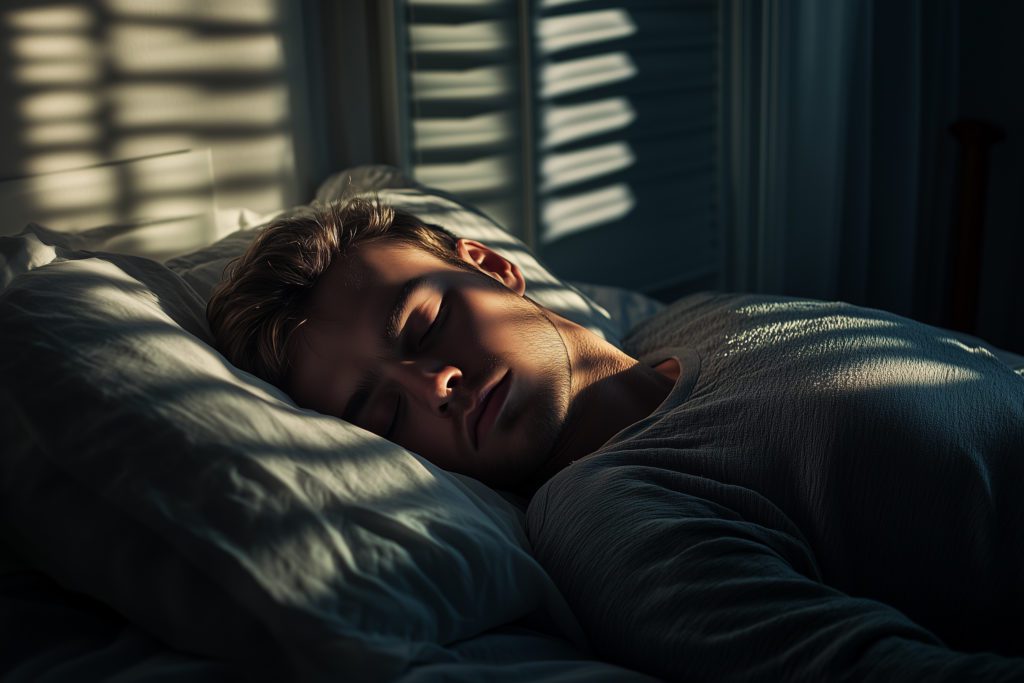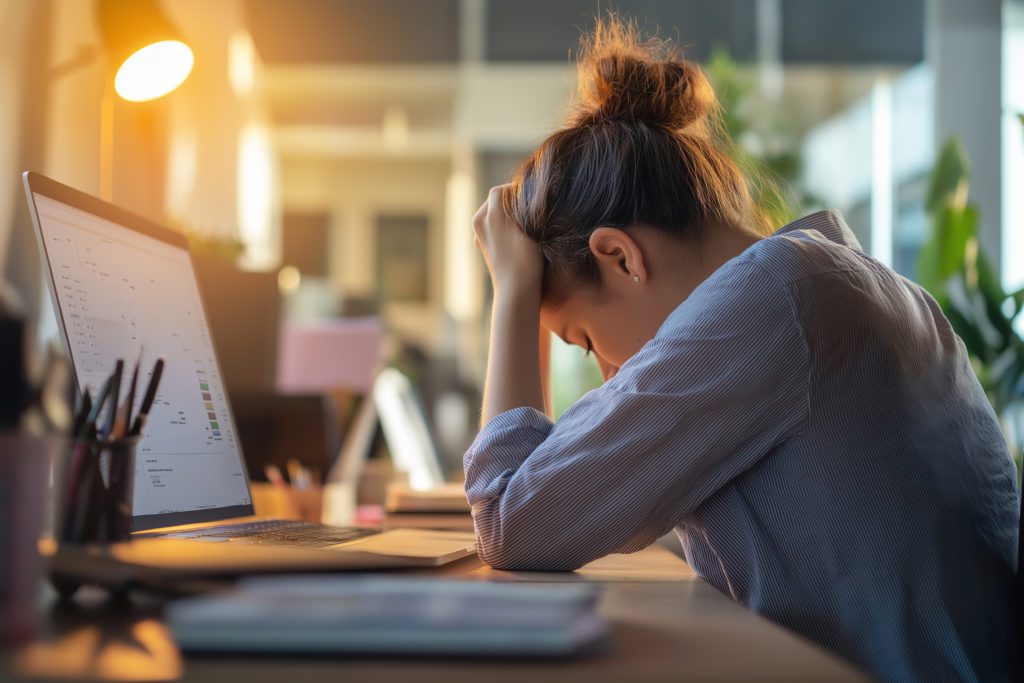
Teen Sleep and Mental Health: Exploring the Connection
Research has shown that teens aren’t getting enough sleep and it’s impacting their mental health. Teens who have sleep issues are more likely to suffer from anxiety, depression, and other serious mental health issues.

It's not uncommon for teens to stay up late scrolling through social media or talking to their friends. This leaves many teens struggling to get out of bed in the morning. Teens need 8 to 10 hours of sleep a night. However, more than 72 percent of high school students don’t get enough sleep.
It is well-known that sleep deprivation can affect physical health. But, what many people don’t know is that a lack of sleep also has a strong impact on mental health, as well. Sleep in adolescence is essential for mental well-being. A lack of sleep in teens can cause irritability, mood swings, and a lack of motivation.
Teen Sleep and Mental Health
There is currently a teen mental health crisis in the United States and research indicates that sleep deprivation may be one contributing factor.
A lack of sleep in teens is a risk factor for the later development of depression and anxiety. One study, published in the Journal of Child Psychology and Psychiatry, followed teenagers beginning when they were 15 years old. Participants didn’t have anxiety or depression at the time that they enrolled in the study at age 15. However, those who reported not sleeping well at the age of 15 were more likely to experience depression or anxiety when they reached the ages of 17, 21, and 24.
Another study, this one published in 2022, examined the health data of 11,533 teens in the U.K. The researchers found that a lack of sleep was strongly correlated with behavior problems, attention deficit hyperactivity disorder (ADHD), and problems managing emotions.
A 2023 Florida study found that teens who didn’t get adequate amounts of sleep were more likely to report feeling hopeless or sad compared to students who said they didn't get enough sleep. Students who didn’t get enough sleep were more likely to experience suicidal thoughts or engage in self-harm.
It doesn’t take much of a loss of sleep to impact teens’ mental health. A loss of just one hour of sleep a night can result in increased suicidal ideation and suicidal attempts, according to a study published in the Journal of Youth and Adolescence.
Why Aren’t Teens Getting Enough Sleep?
There are many reasons why teenagers don’t get the recommended amount of sleep.
- Early school start times - Teens are naturally “night owls”, meaning that their natural tendency is to stay up late at night and sleep late in the morning. However, most schools have early start times, which conflict with this sleep schedule.
- Use of electronic devices - Electronic use at bedtime has one of the biggest impacts on teens sleep. Adolescents who spend time on cell phones or laptops before bed are more likely to be tired the next day and sleep poorly.
- Hormones - One reason why teens have trouble falling asleep is because they make the sleep hormone melatonin later at night. This delays bedtime for teens.
- Video games - Studies have shown that video games are linked with difficulty falling asleep, later times falling asleep, and fewer hours of sleep a night.
- After-school commitments - Busy schedules can make it hard for teens to get enough sleep. Working after school, excessive homework and sports practice can all cut into sleep time.
- Sleep disorders - Narcolepsy, obstructive sleep apnea, night terrors, and other sleep disorders can interfere with teens’ sleep.
Signs of Mental Health Problems in Teens
It’s important to address your teen’s sleep issues. But, if your teen is experiencing mental health problems that are affecting their ability to function, you’ll also want to get them mental health help. Talk to your teen’s physician or a mental health provider if your teen has the following symptoms:
- Irritability
- A lack of interest in things that they used to enjoy
- Trouble concentrating
- Feeling hopeless, sad, worthless, or empty
- Angry outbursts
- A decline in academic performance
- Problems with relationships
If you notice the following issues in your teen, then it’s important to take immediate action to get them help.
- Severe mood swings
- Hearing or seeing things that aren’t there
- Drug or alcohol abuse
- Self-harming behaviors
- Suicidal ideation
- Risky or self-destructive actions
Note: If your teen is having the above serious issues or thoughts of harming themselves or someone else, call 988 for immediate help from a trained counselor.
How to Help Your Teen Sleep Better
When it comes to sleep, making small daily changes can make a big difference. Here are some tips to help your teen get a better night’s rest.
Establish a “No Screens in the Bedroom” Rule
One study found that 68 percent of teens bring their cell phones into bed. The problem is that this can disrupt sleep. The screens of phones, tablets, and other electronic devices emit a blue light, which has been found to interfere with sleep. Remove all screens at least a couple of hours before bedtime.
Limit Late-Night Snacking
Many teens like to snack late at night. However, this can interfere with sleep. Studies have found that teens who get less sleep tend to ingest more sugar and calories after 8:00 PM. So, limit late-night snacking and also ensure your teen isn’t drinking caffeine late in the day.
Encourage Your Teen to Exercise
Experts recommend that teens get at least one hour of exercise a day. Being active will help your teen sleep better at night. You can find fun activities to do with your teen or encourage them to participate in a sport.
Create a Soothing Sleep Environment
Help your teen transform their bedroom into a relaxing and comfortable place to sleep. Make sure your teen has a comfortable mattress and pillows. Use blackout curtains or blinds to shut out light. Consider investing in a sunrise alarm to help your teen naturally wake up in the morning.
Don’t Let Your Teen Overbook Their Schedule
Many teens have a packed schedule. However, doing too much can interfere with your teen’s sleep. If your teen has an after-school job, make sure they don’t work too late. Allow them to participate in just one or two activities after school.
FAQ
How does social media affect teen sleep patterns?
Scrolling through social media at night not only reduces the total sleep time but also increases mental stimulation, making it harder to fall asleep. Additionally, blue light from screens suppresses melatonin production, delaying sleep onset.
What sleep disorders are most common in teens?
Insomnia, delayed sleep phase syndrome (a shifted internal clock), sleep apnea, restless leg syndrome, and narcolepsy are some sleep disorders that can affect teens, often contributing to daytime fatigue and mood changes.
Are naps good or bad for teen sleep?
Short naps (20–30 minutes) can help refresh energy levels without disrupting nighttime sleep. However, long or late naps can interfere with a teen’s ability to fall asleep at bedtime.
What are some effective ways to help a teen relax before bed?
Encouraging relaxation techniques such as reading a book, deep breathing exercises, or listening to calming music can help signal the brain that it’s time to wind down for sleep.
Is melatonin safe for teens struggling with sleep?
While melatonin supplements can help in some cases, they should only be used under medical supervision. Encouraging natural melatonin production through a dark, screen-free environment at night is the best approach.
How does sleep deprivation affect a teen’s brain development?
Sleep is crucial for brain development, especially in teenagers. During deep sleep, the brain strengthens neural connections, consolidates learning, and removes waste products. Chronic sleep deprivation can impact memory, decision-making, and emotional regulation.

Written by
Emily Mendez
Emily Mendez is a former therapist and mental health author. She is one of the leading voices in mental health. Emily's writing has appeared in eCounseling, SonderMind, and more. Emily is frequently interviewed by Healthline, Fatherly, INSIDER, Family Circle, and other national media for her advice and expert opinion on the latest mental health topics.
Download Pillow
Get help
Press & News
Legal
Connect
X (Twitter)
Company
Copyright © Neybox Digital Ltd.



